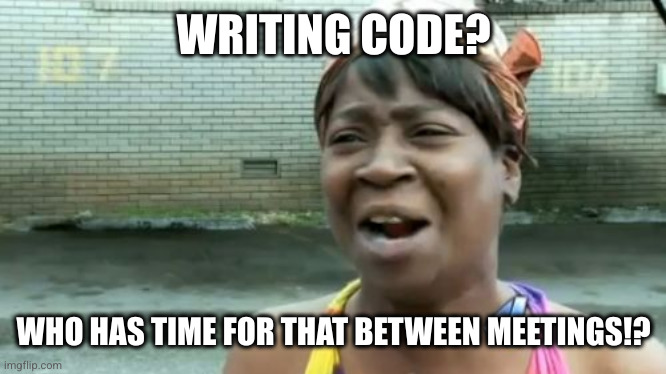Hehe, no hate here - I likewise was spinning off of what you said, carrying it forward:-) (bc those are quite important matters indeed!)
- 0 Posts
- 11 Comments
And isn’t testing even more so!?

100,000% this - money or even utility seems to not be everything, compared to feeling self-importance

 0·6 months ago
0·6 months agoThe syntax of Perl seems superior to me, though partly b/c I just like the style of semi-colons and braces as in C++, and also so that you can edit it in any text editor you choose, not just those IDEs or ones that will show you the difference between a tab and some spaces.
But mostly perhaps b/c I have not invested any efforts into actually learning Python the same way that I did Perl - that O’Reily book that explained, from the perspective of the literal creator, why things work in Perl as they do, was a fantastic read!

 0·6 months ago
0·6 months agoPython, which I hate the syntax of with an actual passion, legit offers more library support though, so is this a lost cause at this point? Especially with junior devs, who to the extent they think they know how to program at all, do so in (well, JavaScript mainly iirc, but afa back-end specifically) Python?:-(

 0·6 months ago
0·6 months agoB-b-but the salesperson said that i-i-it…
For food. You know… nom nom (the humans as food I am hinting at!:-P).

 1·7 months ago
1·7 months agoI am starting to come around if not to the horrible solutions then at least the shift in thinking that made people consider using those, over the old-school approach.
Back then, the internet was this cool new thing. Fast-forward to today, and all those old pages with broken links, outdated information, and outdated presentation of information, can be problematic. e.g., should a site show an email address, or a phone number, or will doing so allow it to be spammed by bots? (except: that will happen anyway, no matter what, and why prevent people who have legitimate needs to find information?)
Back then, people had actual attention spans, and finding new information was cool, so when people saw it, they gobbled it up and relished the chance to do so. Fast-forward to today though, and there is so much more information (& unfortunately misinformation, plus active disinformation too) than could ever hope to be read, much less absorbed and/or retained, that the default is to skim or skip rather than actually “read”, e.g. a ToS/ToC that is mandatory to continue with a service that you use literally daily.
So, I am not advocating for e.g. CSS, or React/Angular, etc., but I at least see why people were considering those options, b/c there were problems with the old approach too.



For those of us who read developer code better than PO/PM “english”, indeed code is the documentation, or at least can be. Ofc when the code is thousands of lines long, split between multiple files, interacts with networked resources that you’ve never heard of, sending signals that do who knows what downstream, upstream, sidestream, flipstream, or whatever… yeah documentation can be important too:-). Also when the code is in some other language that you don’t know quite as well.
By “testing” I should clarify that I did not necessarily mean things like user or unit testing - though that stuff has its place too - but rather even more foundational “verify that your code does what it is supposed to do” kind of testing:-). One could argue that that is just straight-up “writing code”, but then too writing documentation could be folded into that as well, e.g. having things like human-readable variable names, Pre & Post conditionals for functions and the like, so it all gets a bit fuzzy here.
And if we are being pedantic, a “quick call?” could save a month or year’s worth of time “writing code”, to ensure that you know what needs / desires to be done. Likewise, updating Jira could save someone else SOO much time, or even yourself down the line when you wonder about something that was never mentioned. So I assume that OP was not taking this all that seriously, and just joking about “yeah, meetings are less fun than writing code”, and we all ofc have to pile on with our further opinions about what’s fun:-).